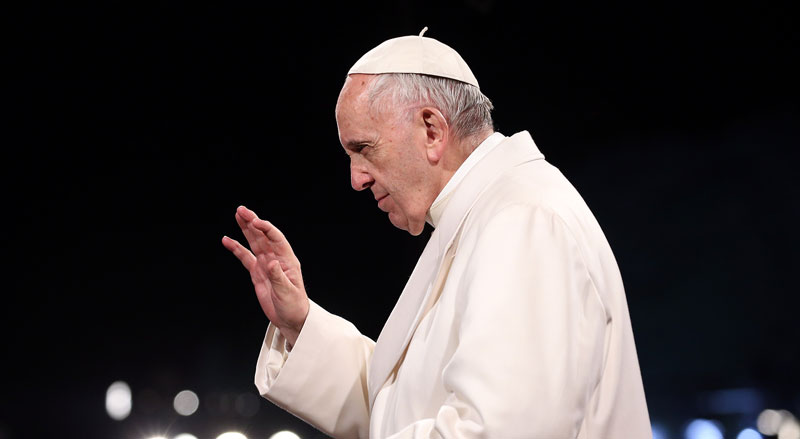As a new study shows a rise in anti-Semitism in the United States, a group accused of Holocaust denial is preparing to unleash a media campaign against what it calls “Jewish-Zionist power.”
The Institute for Historical Review (IHR) in Newport Beach, Calif., hopes to “dramatically increase” its appearances on radio and television programs to spread anti-Israel messages it says Americans are now more willing to hear. Called anti-Semitic by hate-watch groups, the IHR has a modest following and a small operation in the United States. But the institute set off alarm bells when it co-organized a Holocaust revisionism conference that was to take place in Beirut last year.
“For the first time ever, organized Jewry and its non-Jewish apologists in political life and the media are having real difficulty whitewashing Zionist atrocities,” said a statement posted on IHR’s Web site explaining the institute’s new media campaign. “The IHR is uniquely positioned to speak, factually and forthrightly, about the U.S.-Israel ‘special relationship’ … and the Zionist threat to world peace.”
Watchdog groups say that the IHR is couching its hatred of Jews in anti-Israel rhetoric in order to make it more palatable to the increasing numbers of people around the globe who are anti-Israel.
“Being anti-Israel right now is a little bit more en vogue than Holocaust denial,” said Aaron Breitbart, a senior researcher at the Los Angeles-based Simon Wiesenthal Center. “So they are going through the anti-Israel door to perpetuate anti-Semitism.”
In a telephone interview from his office, IHR Director Mark Weber explained why he thought the time was ripe for a media blitzkrieg: “My sense is when I have been on interviews in the last year, there is far more receptiveness to my views. Millions of Americans believe they have been deceived and lied to about the Middle East. There is a growing agitation from college campuses and a sense of alarm voiced by Jewish leaders about American public opinion and world public opinion.”
In a nationwide survey released in June, the Anti-Defamation League (ADL) reported that 17 percent of the 1,000 Americans polled hold “hardcore” anti-Semitic views. The number is up from 12 percent in 1998. The 626 anti-Semitic incidents tallied in the past five months represent an 11 percent increase over the 564 incidents that occurred during the same period last year, according to the study. The study also found that 35 percent of Hispanics, one of the fastest growing ethnic group, and the same percentage of blacks have anti-Semitic beliefs.
Although watchdog groups are alarmed by the reach the IHR and similar outfits seem to have in the Middle East and Europe, most say the institute has little chance of penetrating the American mainstream. Some, however, say that the IHR may hold sway with segments of the American population that have become increasingly anti-Israel and even anti-Semitic.
“It’s possible that they could make inroads on campuses,” said Rabbi Marvin Heir, the founder and dean of the Simon Wiesenthal Center. “But they will be much less successful in the United States than in Europe.”
“There is more fertile soil for them to operate now,” said ADL National Director Abraham Foxman. “But they won’t be too successful because they are so extreme, and the American people have good sense. They’ll be successful with the 17 percent but not beyond that.”
Others see IHR’s entrance onto the anti-Israel stage as providing an ironic benefit to Israel, in that its presence would harm the reputation of any movement with which it associates. “I’m annoyed, I’m not alarmed,” said Holocaust scholar Michael Berenbaum, director of the Sigi Ziering Institute for the Holocaust and Ethics at the University of Judaism. “This just brings additional discredit to anti-Zionism.”
Marilyn Mayo, associate director of the ADL’s national fact-finding department, said there are many groups like the IHR that are looking to take advantage of a moment when the chips are down for Jews around the globe. “Neo-Nazi groups and anti-Semitic groups feel that due to the current situation in the Middle East they can exploit what they see as anti-Jewish feeling coming out of the anti-Israel feeling to further their own cause.”
Mayo said the IHR is too small and marginal to create an impact here. But Mayo said the ADL is concerned about the group’s liaisons with Holocaust denier groups in Europe and the Middle East.
The Holocaust denial conference co-organized by the IHR was set to take place in Beirut in March 2001. It was eventually called off by the Lebanese government under pressure from the American government. Titled “Zionism and Revisionism,” the event was billed as an opportunity for Western extremists to meet their counterparts in the Islamic world. A scaled-down conference took place in April 2001 in Jordan. The event was sponsored by Verité et Justice, a Swiss neo-Nazi group. The Swiss group is headed by Jurgen Graf, who fled to Iran after a Swiss court charged him with Holocaust denial in 1988.
Contrary to media reports, the ADL study showed that anti-Semitism is nearly nonexistent on college campuses. Only 3 percent of students and 5 percent of faculty polled harbored anti-Semitic beliefs, the report stated. “Education is the best vaccine,” Foxman said. The margin of error for the report is plus or minus 3 percent.
But Foxman said the results from the ADL’s most thorough survey of the burgeoning Hispanic community were “disturbing.” He noted that although 35 percent of Hispanics held anti-Semitic views, the number was inflated by foreign-born Hispanics, 44 percent of whom responded with anti-Semitic beliefs. Only 20 percent of Hispanics born in the United States fall into the anti-Semitic category.
“We are greatly concerned that many of the gains we had seen in building a more tolerant and accepting America have not taken hold as firmly as we had hoped, and have to some degree been reversed.” Foxman said.
The IHR statement was mailed to solicit funds from IHR supporters and is posted on its Web site ahead of the organization’s annual conference that took place June 21-23 in Orange County.
Weber said the IHR is neither a Holocaust denial outfit nor an anti-Semitic group. According to IHR’s Web site, the conference featured a member of the editorial advisory committee of IHR’s bimonthly journal, Robert Faurisson, a French revisionist historian who denies that Nazis used gas chambers to kill Jews. The Web site also lists among scheduled speakers Joseph Sobran, former editor of William Buckley’s conservative National Review, who will lecture on the “Jewish question,” and Tony Martin, African studies professor at Wellesley College, who will speak on the “the Jewish role in the trans-Atlantic slave trade.”
Past speakers have included author David Irving, who lost a libel suit he brought against Deborah Lipstadt after she accused him of Holocaust denial.






















 More news and opinions than at a Shabbat dinner, right in your inbox.
More news and opinions than at a Shabbat dinner, right in your inbox.